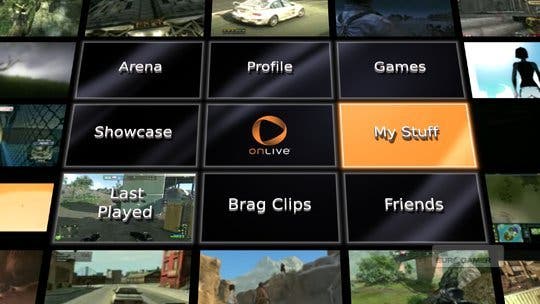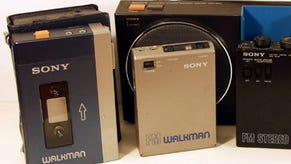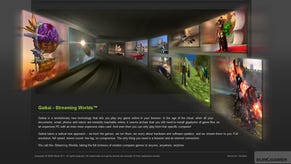Gaikai
Dave Perry sells you into blissful slavery.
"I really wanted to solve this one," he says, "so at my house I pinged out all of the local cities and did a map - I live in sunny California - and it shows you how weird the internet layout is. I can ping to San Jose, which is [further away] than the length of England, in 20 milliseconds, but if I go south, I can go about a third of that distance. If I go out to Las Vegas it's 17. Imagine if this bar is Las Vegas, if I go that much more [gestures a small distance] it's 93, and the reason is because clearly Las Vegas is not connected to this [second part], and I'm having to go all the way around to get there from somewhere else.
"You can see it immediately in the numbers, and that means if we want to serve customers in Utah, we have to put servers in Utah. It's not complicated, because with the map you crunch the numbers and Utah's screwed, so we've got to put a server in Utah, and the question is can you afford to buy the servers, and that comes up to do you have investors that are supporting it?"
Part of it's investment, but there's also a big question mark over the technology, which Digital Foundry did its best to scratch off recently by grilling Perry and his colleagues Andrew Gault and Rui Pereira. Rather than dial back the rhetoric though, Perry keeps introducing new elements, like the idea of users' idle processes being hauled back into the cloud to crunch data for others. "I have a friend who's working on that," he says mysteriously. "He's making good progress. It's quite complicated. One of the hardest parts is convincing people to install it on their computers, because it's less the technology challenge and more the structural challenge."

If it all comes together, though, the theory is that Gaikai-based games and game demos should start to appear as soon as next year. Perry's hypotheticals are arresting. Embedded time-limited demos on publisher homepages could allow for instant gameplay and then ask the user if they want to buy the game, immediately transporting them to the publisher's e-distribution arm, or providing a pre-order coupon for retail. Console games could be offered and even retain their multiplayer elements - a Nintendo console could be emulated so that the host could send a link to friends who then loaded it up, clicked a vacant "Player 2" controller graphic and immediately joined in, and the service layer between a guy with a keyboard firing blue shells in London and the server interfacing with the Nintendo console's wildly different hardware needn't be that complicated. With the game session's hosting handled remotely, games can run on whatever platform Perry's clients want the servers to run.
There are limitations. Anyone who has watched the demo - especially the one annotated by Digital Foundry - will know that games use different resolutions, and some games don't yet perform brilliantly, like Need for Speed. Perry's answer is: give us time. The sight of Call of Duty 4: Modern Warfare on Perry's test-server portal page was tantalising, and the reason he didn't load it up, he says, is that the methods used to get FPS games working well on Gaikai are in progress. "There's two solutions to that," he says. "One is elegant, one's not so elegant - we've got the not-so-elegant solution working, and I'm really holding on until we get the elegant one."
From a gamer's perspective, Gaikai is, for now, a lot of unfinished ideas, hypothetical scenarios and business speak, and to some extent has only been thrust into public view this early in order to illustrate the difference between it and OnLive. On the one hand, it could perhaps do with a bit more marketing coordination. On the other, you can understand why Perry's focusing on the sales pitch: Gaikai isn't for you; it's about you, and what you represent once you've been lured in by the technology and packaged for sale. The interesting thing about it - apart from the fact it sounds like it will work - is that gamers stand to get hold of a useful new toy in the process.
Dave Perry is co-founder of Gaikai and also creative director at Acclaim. Article by Tom Bramwell, interview by Rob Purchese.
















